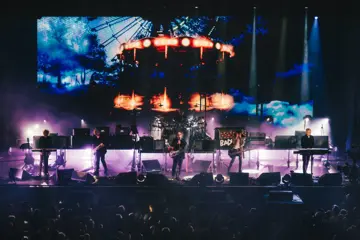Steve Jobs truly helped shape today's world through his technological innovations. His death in 2011 ignited cinematic interest in his life, first in the lacklustre Jobs. The new film, Steve Jobs, brings a fresh approach to the titular subject.
The film sees three different time periods of Steve Jobs' life (played by Michael Fassbender), focusing on intense backstage dramas — from strained business relationships to personal conflict acknowledging his daughter — prior to presenting three Jobs innovations: Apple Macintosh, NeXT Computer and Apple iMac.
It's unbelievable how this hasn't dominated awards season. Like The Social Network, its strength is its triumvirate of masterful cinema talents. Writer Aaron Sorkin gives Jobs the Zuckerberg treatment, painting an incredibly provocative, complex portrait over fact. It's full of Sorkin's trademark quick-fire wit and effective realism/depth. The film is a Danny Boyle tour-de-force, from his immersive takes, staging, kinetic camera, innovative film-stock use and his capacity to captivate — particularly when effortlessly contrasting two engaging conversations over two time periods.
The centrepiece is Michael Fassbender's powerhouse performance. He creates a daring vision of Jobs' genius and his deep personal imperfections, enhanced by phenomenal support from Kate Winslet's long-suffering marketing exec Joanna Hoffman, Seth Rogen's friend/foe Steve Wozniak, Michael Stuhlbarg's soft-spoken Andy Hertzfeld and Jeff Daniels' mentor-like John Sculley.
Steve Jobs is a triumph — a complex, entertaining and engagingly cinematic character study.
Don't miss a beat with our FREE daily newsletter















